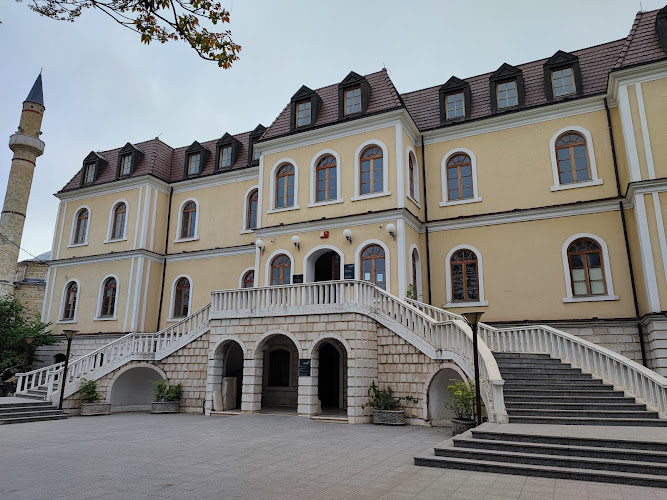
About Kosovo Museum
The Kosovo Museum, housed in an ochre-painted villa dating back to 1889, offers a captivating journey through the region's rich history. This expansive institution boasts an extensive permanent archaeology exhibition that meticulously chronicles life in the area during the Illyrian, Dardanian, and Roman periods, complete with excellent English-language interpretations. The museum's collection is a treasure trove of archaeological discoveries, historical documents, and ethnographical artifacts that provide a comprehensive timeline of Albanian heritage in the region. Visitors can expect to encounter a diverse array of objects, from ancient tools and pottery to intricate jewelry and traditional costumes, each piece telling a unique story of Kosovo's past. One of the museum's distinguishing features is its outdoor park area, which extends the exhibition space. Here, larger artifacts and architectural elements are displayed, allowing visitors to appreciate the scale and craftsmanship of historical structures in an open-air setting. The Kosovo Museum stands as a cultural cornerstone in Pristina, preserving memories of a bygone era amidst the rapidly changing urban landscape. It offers a profound and immersive experience for history enthusiasts and casual visitors alike, providing a crucial link to the region's complex heritage. While the museum's collection is undoubtedly impressive, it's worth noting that some visitors have reported varying experiences. Some find the exhibits enlightening and well-presented, while others suggest room for improvement in organization or display techniques. Nevertheless, the museum remains an essential stop for anyone seeking to deepen their understanding of Kosovo's cultural tapestry and archaeological significance.The Kosovo Museum, housed in an ochre-painted villa dating back to 1889, offers a captivating journey through the region’s rich history. This expansive institution boasts an extensive permanent archaeology exhibition that meticulously chronicles life in the area during the Illyrian, Dardanian, and Roman periods, complete with excellent English-language interpretations.
The museum’s collection is a treasure trove of archaeological discoveries, historical documents, and ethnographical artifacts that provide a comprehensive timeline of Albanian heritage in the region. Visitors can expect to encounter a diverse array of objects, from ancient tools and pottery to intricate jewelry and traditional costumes, each piece telling a unique story of Kosovo’s past.
One of the museum’s distinguishing features is its outdoor park area, which extends the exhibition space. Here, larger artifacts and architectural elements are displayed, allowing visitors to appreciate the scale and craftsmanship of historical structures in an open-air setting.
The Kosovo Museum stands as a cultural cornerstone in Pristina, preserving memories of a bygone era amidst the rapidly changing urban landscape. It offers a profound and immersive experience for history enthusiasts and casual visitors alike, providing a crucial link to the region’s complex heritage.
While the museum’s collection is undoubtedly impressive, it’s worth noting that some visitors have reported varying experiences. Some find the exhibits enlightening and well-presented, while others suggest room for improvement in organization or display techniques. Nevertheless, the museum remains an essential stop for anyone seeking to deepen their understanding of Kosovo’s cultural tapestry and archaeological significance.
Location
Places to Stay Near Kosovo Museum
Find Tours in Fushe Kosove
Explore More Travel Guides
No reviews found! Be the first to review!

